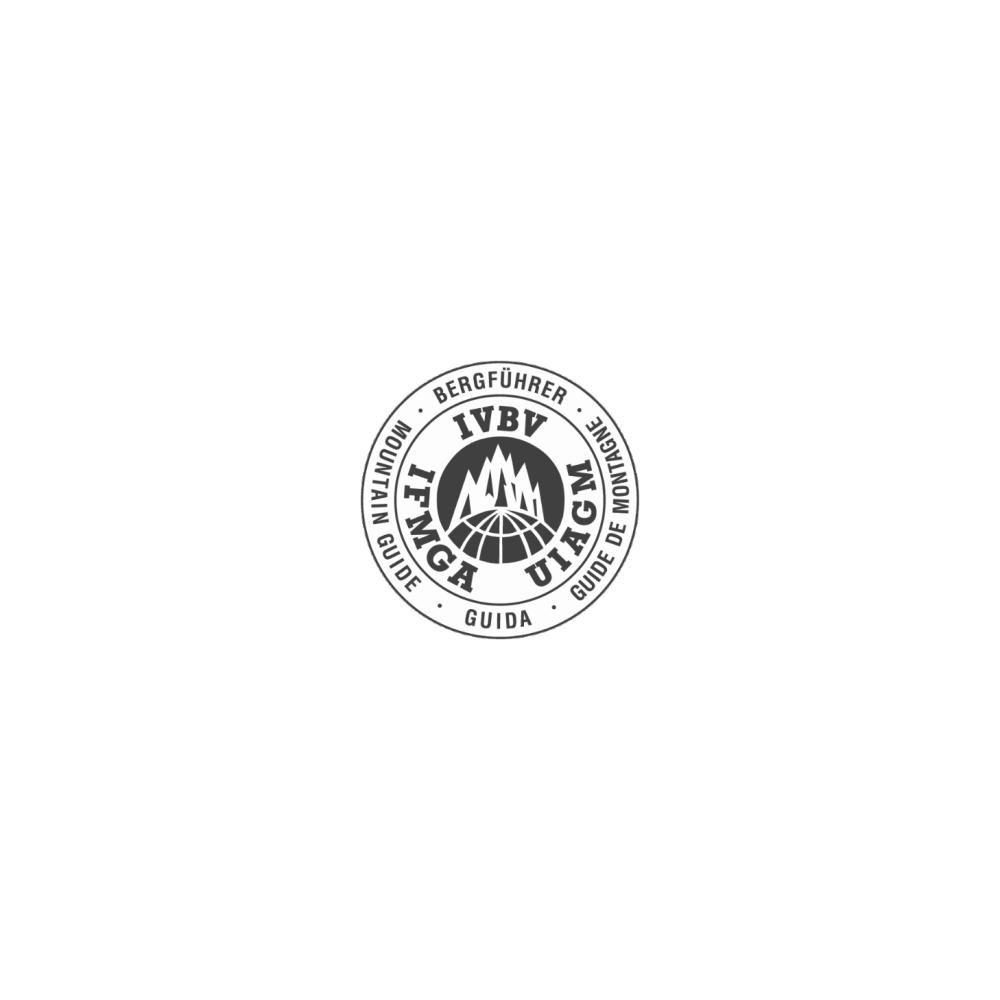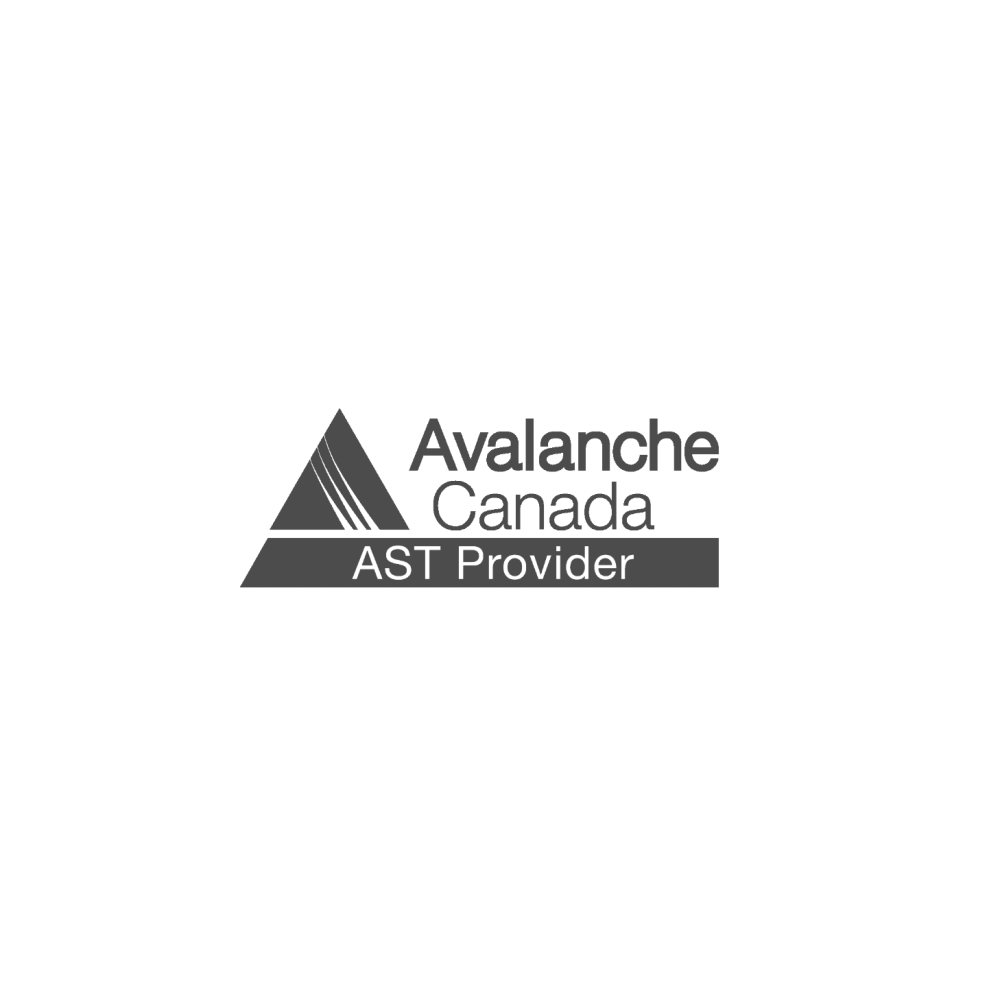AST 2 Course in Golden? Grab a Seat!
Book your seat today on our AST 2 Golden & Rogers Pass this season. This Cloud Nine AST 2 Course spans 4 consecutive days with the townsite of Golden BC as our base.
The AST 2 Golden & Rogers Pass Curriculum is designed for Intermediate Backcountry Users looking to access more complex terrain, and those wanting the skill sets required to make accurate assessments of risk in more complex snowpack environments. Develop your understanding of the theories related to "confidence" and "uncertainty" in your decision-making, advanced route and trip planning, and learn tactics that enable you to safely make exceptions to the given Hazard Ratings and Problems as listed in the Public Avalanche Bulletin, in addition to the ATES Ratings for your proposed trips.
This AST 2 will set you on course to begin to effectively manage personal and group exposure to risk, access the lines you've been eyeballing for at least a few years now, and give you the skills you require to access and explore more complex Backcountry environments post-course in these bigger ranges.
Field Days:
Our Field Days are based from Golden, with objectives to the east near Field BC, the Purcells accessed directly from Golden, and the iconic Rogers Pass venues to the west in the Selkirks.
Group Discounts:
Have you got a Cloud Nine Guides AST 1 Certificate? Take $100 off any of our AST 2 Courses this season - drop us an email to get your promo code before you book!
Even better: Want to book your AST 2 with friends or family? Drop us a line to pick up a promo code for reduced rates on groups of 4 or more on our public AST 2 Courses. Get 10-20% off when you show up with your crew.
ITINERARY
Day 1 – Theory 7.5hrs
Hosted via Zoom Meeting - Course Start 9am.
- Module 1 - AST 1 Fundamentals Review
- Review Avalanche Formation and Characteristics
- Review Avalanche Terrain Characteristics
- Review ID of Terrain Traps
- Discuss the evolving focus of Human Factor on Decision-Making in Avalanche Terrain.
- Review a model for Pre-Trip Planning and Risk Assessment Process.
- Review Decision-Making Competence, and individually assess how our Competencies may have changed since the AST 1.
- Module 1.2 - Introduction to the Decision-Making in Avalanche Terrain Field Book
- Beyond the AST 2, The Decision Making in Avalanche Terrain Field Book will become one of your new and primary support structures for both pre-trip planning, and field based decision making. Review the layout of this new tool with your instructor, and develop tactics on your field days to begin to use this as a tool to:
- Make Terrain-based decisions
- Observe and Record Avalanche Problems of Interest
- Ensure proper execution of Snowpack Stability Tests
- Quick Reference Materials include:
- Pre-Departure, Trailhead, and Travel Checklists
- Avalanche Rescue Procedures
- Key Indicators of increased Avalanche Risk
- Beyond the AST 2, The Decision Making in Avalanche Terrain Field Book will become one of your new and primary support structures for both pre-trip planning, and field based decision making. Review the layout of this new tool with your instructor, and develop tactics on your field days to begin to use this as a tool to:
- Module 1.3 - Avalanche Character Types
- Curious about the difference between a Windslab and Stormslab? Or what constitutes the difference between a Persistent and a Deep Persistent Slab? We'll dig into the subtleties of avalanche character; how to manage and what to expect from each.
- Curious about the difference between a Windslab and Stormslab? Or what constitutes the difference between a Persistent and a Deep Persistent Slab? We'll dig into the subtleties of avalanche character; how to manage and what to expect from each.
- Module 2 - Leadership & Travel in Avalanche Terrain
- Managing risk and maintaining reasonable risk levels in more complex terrain or periods of elevated snowpack hazard require a broader ownership of skills in choosing your groups, and applying appropriate group management or travel techniques - expect to cover these tactics in depth.
- Managing risk and maintaining reasonable risk levels in more complex terrain or periods of elevated snowpack hazard require a broader ownership of skills in choosing your groups, and applying appropriate group management or travel techniques - expect to cover these tactics in depth.
- Module 3 - Avalanche (Companion) Rescue
- Learn the theory of how to execute more advanced or complex companion rescues. We discuss common search methods that will address the added complexity inherent with multiple victim/burial avalanche rescue.
- Learn the theory of how to execute more advanced or complex companion rescues. We discuss common search methods that will address the added complexity inherent with multiple victim/burial avalanche rescue.
- Module 4 - Decision Making Support Systems
- Since the AST 1, the way we use and interpret the information in the Public Avalanche Bulletin, the ATES Rating System, and your AVALUATOR will have changed. Learn how intermediates approach and apply information from these essential support products in new ways reflective of the experience you've acquired since your AST 1.
- Since the AST 1, the way we use and interpret the information in the Public Avalanche Bulletin, the ATES Rating System, and your AVALUATOR will have changed. Learn how intermediates approach and apply information from these essential support products in new ways reflective of the experience you've acquired since your AST 1.
- Module 5 - Terrain Exceptions
- Not all trips have an ATES Rating. Learn a systematic process for making exceptions to a trips given ATES rating based on local exceptions in terrain character. And better still, learn to develop an ability to create your own ATES Ratings on trips where none are available to you.
- Not all trips have an ATES Rating. Learn a systematic process for making exceptions to a trips given ATES rating based on local exceptions in terrain character. And better still, learn to develop an ability to create your own ATES Ratings on trips where none are available to you.
- Module 6 - Terrain Verification
- Using a series of images depicting challenging and complex terrain, you will have the opportunity to plan routes up and down through a variety of images presented. The Goal? To help develop and broaden your ability to verify specific terrain characteristics that are used to maximize your experience and manage risk effectively.
- Using a series of images depicting challenging and complex terrain, you will have the opportunity to plan routes up and down through a variety of images presented. The Goal? To help develop and broaden your ability to verify specific terrain characteristics that are used to maximize your experience and manage risk effectively.
- Module 7 - Route Planning
- Learn to apply Google Earth, Gaia GPS & FatMap as part of your pre-trip planning processes. Combine these with your own weather analysis, information in the Public Avalanche Bulletin, and create a product that can be used to ID hazard, plan your travel timings, and line up the best uptrack locations and descents.
- Learn to apply Google Earth, Gaia GPS & FatMap as part of your pre-trip planning processes. Combine these with your own weather analysis, information in the Public Avalanche Bulletin, and create a product that can be used to ID hazard, plan your travel timings, and line up the best uptrack locations and descents.
- Module 8 - Post-Trip Debrief Processes
- Learn to facilitate and structure an effective Post-Trip Debrief with your crew.
- Learn to facilitate and structure an effective Post-Trip Debrief with your crew.
- Module 9 & 10 - Understanding Avalanche Danger & Exceptions
- Learn to more broadly examine the information provided in the Public Avalanche Bulletin to determine whether exceptions to a given Hazard Rating exist on a more local geographic scale.
- Learn to more broadly examine the information provided in the Public Avalanche Bulletin to determine whether exceptions to a given Hazard Rating exist on a more local geographic scale.
- Module 11 - Confidence, Uncertainty, and Decision-Making Quality.
- The ability to make decisions in the Backcountry is one thing. Understanding how and why we make those decisions puts you one step closer to being ready to leave the temple.
- Discuss the principles of expressing confidence level in your decision making, snowpack stability test results, weather, or team.
- Discuss the methods for expressing uncertainty, and interpreting that uncertainty when conveyed to you in the Public Avalanche Bulletin, the weather forecast, or by your partners.
- Begin to understand the ways in which humans make decisions and draw conclusions in the Backcountry, and learn to recognize what constitutes a high-quality or low-quality decision.
Day 2 – Field Day 7-8hrs
Field Day Location: TBD
Meeting Time - TBA. Start Times vary based on field day location - 0830hrs
- Meet Your Field Guides / Instructors
- AM Hazard Evaluation Meeting - Group Exercise
- Discuss changes to your weather forecast overnight with your Guide, and assess impacts on Avalanche Hazard Ratings.
- Review General Plan for the Field Day, including essential equipment required, and emergency response procedures.
- Review inputs in the Public Avalanche Bulletin, and relate information in this product directly to our proposed trip plan.
- Guides to present Waiver of Liability Forms for Students.
- Companion / Avalanche Rescue Gear student sign out.
- Review of Trail Head Procedures.
- Depart for Field Day.
- Session One - Advanced Avalanche (Companion) Rescue Techniques
- Review of basic, Single Burial scenarios.
- Introduction to Multiple Burial scenarios.
- Introduction to FLAG function on modern beacons, and application.
- Review use of analog or modified analog modes when experiencing elevated complexity in the search field.
- Review procedures for activating outside emergency response, mountain rescue programs, first aid considerations and emergency communication devices.
- Student-led scenarios.
- Session Two - Snow Profiles
- Learn proper snow profile construction and tips for efficient builds.
- Learn how to identify key layers of interest, and relate them directly to the problems listed in the Public Avalanche Bulletin.
- Learn to monitor the potential for exceptions to exist when your snow profiles do not produce problems on a local scale, based on those listed in the Public Avalanche Bulletin.
- Learn the how to take measure of snow hardness or resistance, and relate these observations again to specific problems noted in the Public Avalanche Bulletin.
- Learn basic snow crystal identification (rounds, facets, depth hoar, surface hoar, crusts).
- AST 1 Review - The Compression Test.
- Learn Snow Stability Tests which provide likelihood of propensity for propagation - Extended Column Test / Propagation Saw Test.
- Learn to effectively communicate your snow stability test results in avalanche specific language (instant street cred on social media), and make balanced applications of their results to your broader decision making processes.
- Session Three - Afternoon Tour / Travel Objective
- Review The AVALUATOR Card
- Revisit the process for using your AVALUATOR Card in the field, and identify potential for exceptions to the given score to be present.
- Review The ATES Rating Systems
- ID potential for exceptions to exist on a local scale to your your objectives overall ATES Ratings.
- Review The AVALUATOR Card
- Session Five - Learning to Find The Line
- Discuss with your Guide/Instructor the subtleties of visually ID'ing and accessing the lines and descents that inspire you, and are available to you when balanced against current conditions.
Day 3 & 4 – Field Days 8hrs
Field Day Location: TBD
Meeting Time - TBA. Start Times vary based on field day location. Plan for your group to meet between 0700-0830hrs depending on objective and location.
The main goal of Field Days 3 and 4 is to travel and ski/ride. Our objective will be to choose Field Day locations, which give us as much terrain as the snowpack conditions will allow. These days are used to put in context the learnings and processes you will acquire during your theory day on Day 1, along with providing hands-on practice of snow profile skill sets and on-field application of your primary support structures - the Public Avalanche Bulletin, ATES Ratings, the AVALUATOR Card and your Decision-Making in Avalanche Terrain Field Book - reviewed early in the course. These days are all about the process: students will have frequent opportunities to lead and to receive direct feedback and coaching from their Guides as they require.
Logistics
Logistics to consider ahead of your AST 2 Golden / Rogers Pass Course:
-
ACCOMMODATION:
This course is based in Golden BC. This allows access to 3 different mountain ranges and is centrally located. We'd suggest staying at the Kicking Horse River Lodge:
-
TRIP FOOD & MEAL PROGRAMS:
- Students are responsible for their own meals.
- Students are responsible for their own meals.
-
TRANSPORTATION:
- Students are responsible for their own transportation on course.
- Students are responsible for their own transportation on course.
-
NATIONAL PARK ENTRY PASSES:
- Students are responsible for obtaining a National Park entry pass for their field days if required.
- Students are responsible for obtaining a National Park entry pass for their field days if required.
-
ROGERS PASS ANNUAL WINTER PERMIT SYSTEM
- Students are required to arrive on course with an Annual Winter Permit for access to the Rogers Pass area. This pass comes at no cost, but does require you complete an online quiz, with a score of 100% to obtain your pass. You can complete this process here.
REQUIRED EQUIPMENT
Students will require one of the following travel equipment kits to join us on course:
- Alpine Touring Skis
- Splitboard
Note: Snowshoes are not appropriate for the AST 2.
In addition students will require the following:
- Climbing Skins - trimmed to fit your specific equipment
- Ski Poles
- Boots
- Daypack - IMPORTANT: You will require at minimum a 30L backpack. Anything smaller will not be sufficient to hold essential safety equipment.
- Ski Helmet
- Sunglasses (for the uptrack)
- Ski Goggles (for the decent)
- Lunch
- Water
- Thermos with a Hot Drink
- Sun Screen
- Small Blister Kit or Personal 1st Aid Kit
- Small Repair Kit (optional)
- Snow Profile Kit (you can purchase one from us at an extra cost)
- GPS
- VHF Radio
Avalanche Rescue (Companion Rescue) Equipment:
If you have your own beacon, probe and shovel, it's best to arrive with your own equipment. For those requiring this essential equipment, we stock *new rescue equipment replaced yearly, for your use on course, at no extra cost. Our avalanche beacons undergo weekly diagnostic testing to ensure proper function.
- Avalanche Beacon (3 antennae unit, must have been purchased new in past 4 years)
- Avalanche Probe
- Avalanche Shovel (metal blades only)
ESSENTIAL CLOTHING
On our AST 2, this essential clothing list is provided firstly to help support a better quality educational environment for you while on course. On the field days, there will be 20-30 min blocks where our Guides are demonstrating skill sets such as snow profiles and companion rescue where the group comes to a stop for longer periods. Having the right technical clothing that will keep you warm and dry, serves to provide you with a better quality learning environment.
- Base Layers - Either wool or synthetic, or a polypro base layer are the best options. DO NOT wear cotton base layers!
- Mid Layers - Again, wool, synthetic or polypro is are best
- Softshell Jacket or Gore-Tex Jacket
- Softshell Pants or Gore-Tex Pants
- Insulated Jacket - Large Parka style jackets are very important for the moments we are stopped during the field day. Down Parka's or Synthetic Down Parka's are a very important addition to your clothing systems for the course.
- Socks - Wool blend, no cotton
- Warm Gloves, with a light glove Liner
- Toque or Beanie
TRIP CANCELLATION & INTERRUPTION INSURANCE
The AST Level 1 & 2 Courses are non-refundable. The best method to protect your investment with us should unforeseen arise, requiring you cancel your booking, is to purchase a Trip Cancellation & Interruption Insurance Policy.
Acera Insurance has covered many of Cloud Nine Guests on trips all over the world, and we have first-hand experience seeing these policies activated by our Guests.
Safeguard your trip costs and investment with us. Request a Quote from Acera Insurance.
Is this coverage required?
- For Canadian Residents, coverage is suggested but not required to register.
- For Non-Canadian Citizens, coverage is suggested but not required. It is strongly suggested that your policy includes Emergency Medical Coverage, unless you carry an alternative policy which will respond in the event of medical emergency.
WAIVER - Release of Liability & Indemnity Agreement
Prior to booking you will be required to acknowledge that you have been provided a copy of our Waiver of Liability Agreement for your review. All participants, or their legal guardians wishing to participate on any Cloud Nine Programs, must acknowledge that they have been presented this document, have read it in its entirety, and understand the agreement being entered into by signing. While there is no obligation to enter into this agreement with us, it is a condition of our service provision.
Booking TErms & Conditions
Before you book your course, please review our Booking Terms & Conditions. We do not accept bookings without your voluntary acceptance of these terms. Please read carefully as these terms outline specific policies and guidance for both our staff and clients with respect to refunds, cancellations, rescheduling etc.
REVIEW OUR BOOKING TERMS & CONDITIONS HERE
Please note before booking: The AST Level 1 & 2 Courses are non-refundable programs.
Those wishing to reschedule their course dates, may only do so pending our course availability. Rescheduling or order changes will incur a $25 admin fee per occurrence.
Book A PRIVATE GROUP AST 2
For those who prefer our smallest and most focused learning environments. Groups of 4+ can book a Private Group AST 2 on course dates that suit you and your crew best, and one of our ACMG / IFMGA Mountain Guides will join you on your terms. You pick the Group Size as well as pick Field Day venues and dates outside those available on our Public Courses.
Group Discounts available for teams of 5+. Minimum of 4 participants required.
How Do We Book It?
Contact our office to confirm availability for your preferred dates. We'll provide you with a private booking link for you and your group, and register either together or individually.
DO I NEED TO HAVE AN AST 1 CERTIFICATE TO PARTICIPATE?
Yes. Completion of the AST 1 is a prerequisite for participation on any AST 2 Course. We suggest strongly that your AST 1 is accompanied by at least 25-30 days or personal backcountry experience prior to booking the AST 2 Golden & Rogers Pass course.
HOW MUCH SKIING & RIDING SHOULD I EXPECT ON COURSE?
AST 2 Golden & Rogers Pass has higher expectations for skier ability and fitness. This course is for those who want maximum value out of the learning experience, in addition to a larger volume in their skiing and riding on the field days. Expect full days, early starts, and evening planning sessions on each of the field days. Transportation to and from our hub in Golden requires a 1hr commute to both access and return from the Rogers Pass venues.
PHYSICAL & TECHNICAL REQUIREMENTS FOR STUDENTS
The following are minimum requirements for participation on course:
- Must be able to ascend up to 850m vertical per day at a minimum. Strong groups may ascend +1500m per day on Field Day 3 and 4.
- Typical length of day can range from 8-10km, however big days on this course may reach 15-18km travel distance (descents included in these suggestions).
- Must have a strong base of fitness and able to maintain skintrack pace of 3-3.5km/hr consistently, with breaks on the hour, for 7-9hrs per day.
- Must have the ability to descend with confidence any black or double black rated terrain in variable snow conditions within the bounds of a ski resort.
Students who arrive on course and do not meet the above minimum criteria risk being asked to leave the course without credit or refund so as not to impact other student experience.
If you are uncertain about this course being right for you, we would strongly suggest contacting our office to speak with one of our Mountain Guides prior to booking.
WHAT'S INCLUDED?
Your course fee includes:
- An Experienced ACMG Ski Guide or IFMGA Mountain Guide for the duration of your program
- Companion Rescue Reference Card
- Course Certificate
- Avalanche Beacon, Probe & Shovel
Need avalanche rescue gear? Just request this equipment at time of booking and we'll have it for you on course.
WHAT'S NOT INCLUDED?
The following is not included in your course fee:
- Transportation
- National Park Entry Passes
- Meals
- Accommodation
- Ski & Splitboard Rentals
- The Decision Making in Avalanche Terrain Field Book (available for purchase - $24.95)
- Staying Alive in Avalanche Terrain - Bruce Temper (available for purchase)
- Cloud Nine Snow Profile - Pit Kit (available for purchase)
ARE STUDENTS SCREENED TO ENSURE THESE REQUIREMENTS ARE MET?
Yes.
Each student is required to acknowledge during the booking process that they meet these minimum requirements and have the prerequisites needed to participate on course. This requires however an honest self-assessment from prospective students at time of booking, and occasionally students who do not meet the minimum fitness or technical requirements may arrive on course. In these circumstances, students not meeting these minimum requirements may be removed from the program to ensure there are no impacts to the experience of other students on course.
I'VE NEVER SKI TOURED OR SPLITBOARDED BEFORE - IS THIS COURSE FOR ME?
No.
We would suggest taking part in our AST 1 Course, and looking at booking a series of our AST CONNECT+ Days to acquire the experience you require to join the AST 2 Golden & Rogers Pass Course.
WHAT IF I HAVE TO CANCEL?
It's best to be sure you can attend the course if you plan on booking.
The AST 1 & AST 2 Courses are non-refundable.
You are free to sell your seat and transfer the booking to another person, or rebook for a later date within 1 calendar year of your cancellation pending the availability of a seat on another program, and that your cancellation does not limit the our ability to provide the program to other students currently booked on your course date. Each transfer or rebooking will incur a $25 administration fee.
A FOUNDATION OF ESSENTIAL BACKCOUNTRY SKILLS
COURSES DESIGNED TO PUT MORE TERRAIN UNDER YOUR FEET
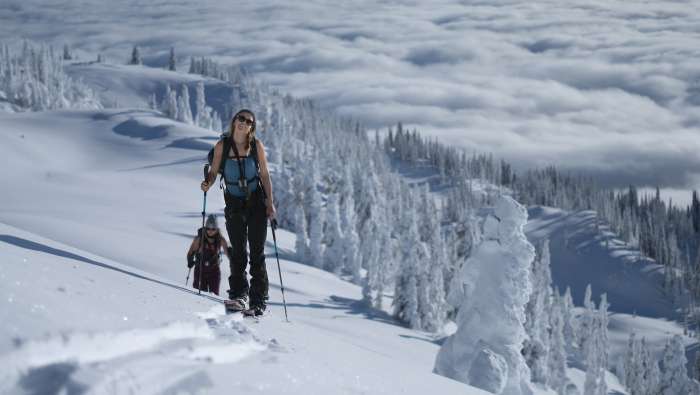
Private Ski & Splitboard Guides - Canmore • Banff • Lake Louise
Private Backcountry Touring for you and your crew in the Canmore, Banff, Lake Louise, and Icefields Parkway. Group rates as low as $210/day.
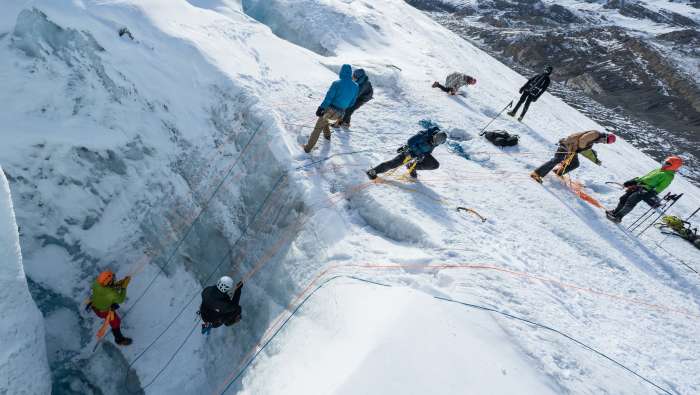
CREVASSE RESCUE SYSTEMS
Essential Skill Sets for Travellers in Glaciated Terrain, from responding to crevasse falls to glacier morphology & travel techniques. Starting at $515/seat.
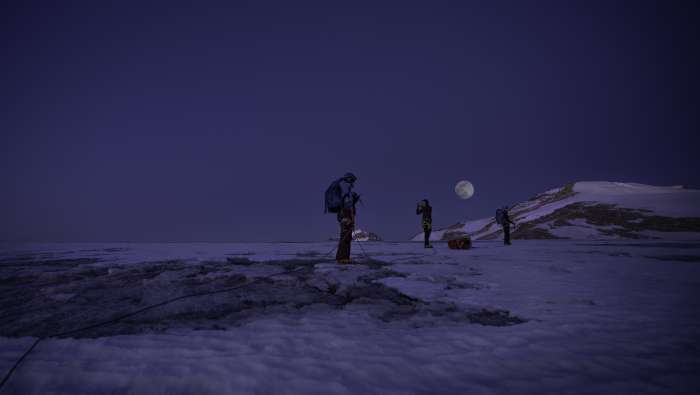
The BMC
Check out our 6-Day Beginner Mountaineering Course: the premiere intro to mountaineering for $2500/student.
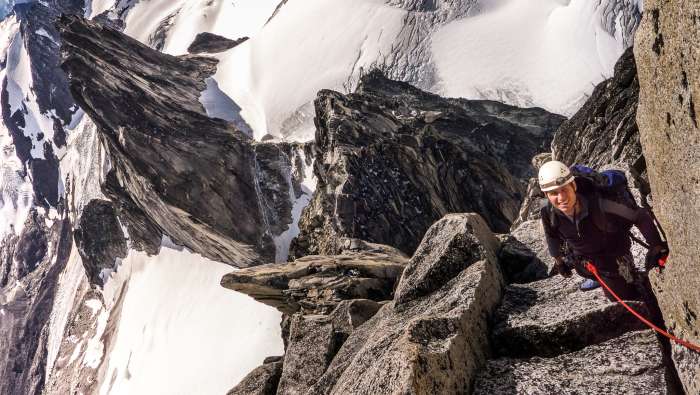
Bugaboo Guides
Book a Guided Ascent of Bugaboo Spire, Snowpatch Spire or Pidgeon Spire this Summer with C9's Bugaboo Specialists.

